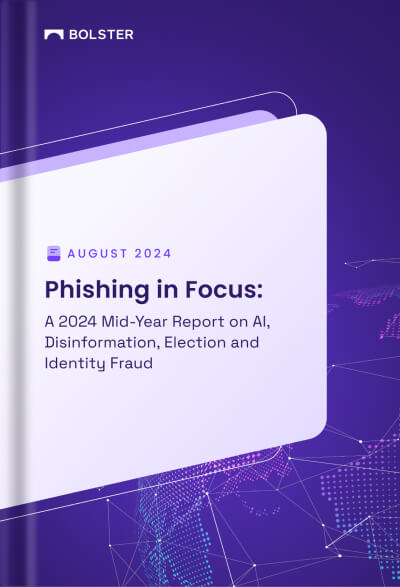What Are Cryptocurrency Scams?
Cryptocurrency (crypto, for short) offers the finance world a high-risk, high-reward investment opportunity, but its enormous potential for gains makes new investors a lucrative target for scammers. Criminals use all the greatest benefits of crypto — decentralization, anonymity, and more — to devastate the finances of the excited and gullible.
Cryptocurrency scams have become more prevalent in recent years as the popularity of bitcoin and other cryptocurrencies has increased. Scammers use a variety of methods to trick people into giving away their cryptocurrency, including fake celebrity giveaways, apps that steal personal information, and fraudulent bitcoin investment schemes.
The malicious intent behind a cryptocurrency scam is to defraud potential investors and users out of their assets, just like any other scam. No matter the plan of attack, these approaches take advantage of crypto’s unique capabilities.
How Do Cryptocurrency Scams Work?
Cryptocurrency scams exploit the anonymous digital nature of crypto transactions to enhance traditional scamming methods, such as impersonation. Like other cyberattacks, they can also take the form of outright theft. Some, like phishing and blackmail, use private methods, while others, like celebrity-boosted rug pulls, love the spotlight.
Types of Crypto Scams
The types of cryptocurrency scams run the gauntlet. Some exploit the hype culture surrounding crypto, while others use more typical cyberattack approaches to exploit the human element. Others go old-school, using techniques that existed even before the invention of the first computer.
Ponzi schemes, impersonation scams, and fake giveaways are some of the top types of cryptocurrency scams that continue to lure unsuspecting victims. Ponzi schemes attract investors by promising unrealistically high returns on bitcoin investment schemes. Impersonation scams often use celebrities or celebrity endorsements to trick users into downloading malicious apps or providing personal information. Fake giveaway scams offer attractive rewards for participating in contests but require payment first, which is a red flag.
Here are some of the other critical cryptocurrency scams for your business to be aware of:
Exit scams
Exit scams take advantage of hype by promising significant returns and sky-high profits, but the creators of these cryptocurrency scams take the money and run, and because crypto functions in an anonymous space, they can hide with the money forever.
Initial Coin Offering Scams, or ICOs, see creators gather up investments and use the excitement to inflate purchases to sky-high prices. Then, they sell all their coins to enthusiastic buyers — dumping the coins — and disappear. Meanwhile, the new holders end up with a currency whose value plummets as buyers realize they’ve been duped.
Rug pulls describe any exciting tech or investment opportunity where the scammers attract major investors and then bail. The investors gain nothing, and they have no recourse, given that crypto transfers are permanent. These scams can also include Ponzi schemes, in which scammers promise additional rewards in exchange for more recruitment. In either case, fraudsters can use celebrity endorsements to drum up hype and maximize the number of victims.
Phishing scams
Crypto phishing scams work the same way as other cyberattacks. The scammer impersonates a legitimate website or service and requests account information. The request often uses a pretense, such as security updates or a fee request from a common service, to encourage the victim to comply.
False pretense
Criminals who operate under false pretenses claim to sell goods or services online and accept crypto as payment, and after the payment is sent, they take it and bolt. Most cut off communication afterward unless they believe they can extract more money from the victim.
Crypto variants
Should all else fail, scammers can still use tried-and-true techniques and require payment in irreversible and anonymous crypto transactions to better cover their tracks. These scams include classic romance and employment scams.
Risk Mitigation: How to Identify and Prevent Cryptocurrency Scams
To protect yourself from crypto scams, remember one thing: If it sounds too good to be true, it most certainly is. You should also disregard cold calls and emails from people you didn’t ask to speak to, and above all else, make wise investments. Don’t get swept away in a sea of hype: Crypto already offers high risks and high rewards
Read more about the FTX Crypto Scam
It’s crucial for IT security and risk management professionals to stay informed on the latest cryptocurrency scams and threats. With new types of fraud emerging regularly, it’s essential to be up-to-date with current tactics used by scammers. This helps in developing appropriate countermeasures against these attacks.
Know how to spot phishing attacks and fake domains
Train your employees on how to identify phishing attempts. This can be achieved through periodic training sessions or simulations, which test their ability to spot fake emails and websites. Additionally, it’s essential to emphasize the importance of double-checking URLs before entering any information or making a transaction. Some phishing attacks use domain names that are similar in appearance to legitimate ones but with slight variations that may go unnoticed at first glance.
Use two-factor authentication and other security measures
Using two-factor authentication and other security measures is crucial in protecting you and your organization from cryptocurrency scams. Here are some key steps to take:
- Enable two-factor authentication on all of your accounts
- Use a hardware wallet for long-term storage
- Keep software up-to-date with the latest security patches
- Beware of social engineering tactics, such as phishing emails or phone calls
- Conduct thorough research before investing in any new project
An extra layer of protection can go a long way in safeguarding against cryptocurrency scams. By using these security measures, you can help ensure that your assets stay secure and protected from fraudulent activity.
Stay up-to-date on the latest scams and threats
To protect yourself and your organization from cryptocurrency scams, there are a few key steps you can take. First, subscribe to reputable scam alert services that specialize in cryptocurrencies. These will keep you informed about the latest scams and help you stay ahead of potential threats.
Secondly, regularly check industry news and updates related to cryptocurrencies. This will help you identify new trends and emerging risks before they become widespread.
Finally, join relevant online communities where experts share information about cryptocurrency scams. This will give you access to real-time insights from people who have experienced these types of attacks firsthand, allowing you to better prepare for future threats. By staying up-to-date on the latest scams and threats in the world of cryptocurrencies, IT security professionals can take proactive steps to protect themselves and their organizations from financial losses due to fraudulent activity.
Be cautious of high-reward, high-risk investments
When it comes to investments, seeking high rewards often means taking on higher risks. This is especially true for the world of cryptocurrency, where many scams and schemes seek to lure in unsuspecting investors with promises of quick profits. As an IT security or risk management professional, you must be cautious when dealing with high-risk investments in the crypto space.
Here are some key points to keep in mind:
- Always do your research before investing in a new coin or token.
- Be wary of any investment that promises guaranteed returns or unrealistic profits.
- Use caution when participating in initial coin offerings (ICOs) and always check for legitimacy.
- Only invest what you can afford to lose; never put all your savings into one investment.
Remember that while there may be opportunities for significant gains in the cryptocurrency market, there are also many fraudulent actors looking to take advantage of inexperienced investors. By staying vigilant and doing your due diligence, you can protect yourself from falling victim to these scams.
How Bolster Can Help Combat Cryptocurrency Scams
Bolster’s phishing detection and takedown solution and other defensive strategies will ensure your company helps protect your network of employees, customers, and prospects from cryptocurrency scams. Bolster balances domain acquisition with monitoring to reduce the likelihood of cyberattacks, combat fraudulent domains and cryptocurrency scammers, and manage security costs.
Additionally, Bolster will remain proactive and monitor the security threat landscape to keep your domain safeguarded. With Bolster’s help, your brand’s reputation will remain protected.
Request a demo of our phishing detection software today to see what phishing attacks we detect for your organization.
Also, check out our community tool CheckPhish






